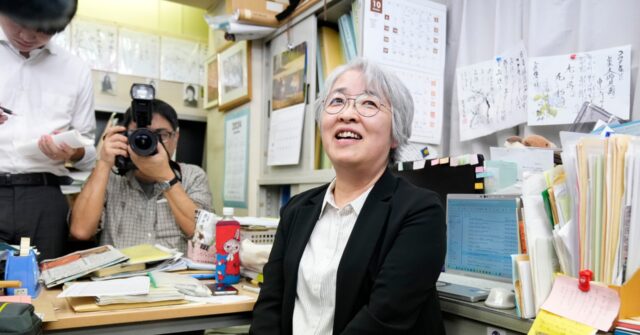Nihon Hidankyo, representing survivors of the nuclear bombings of Hiroshima and Nagasaki during World War II, was awarded the 2024 Nobel Peace Prize for its relentless advocacy for nuclear disarmament and support for hibakusha (atomic bomb survivors). The organization has played a crucial role in raising awareness about the catastrophic consequences of nuclear warfare, advocating for the Japanese government to provide care for survivors, and mobilizing global efforts to abolish nuclear weapons. In a world increasingly troubled by geopolitical tensions and the persistence of nuclear arsenals, the Nobel Committee recognized the organization’s enduring commitment to peace and the moral imperative to prevent future nuclear conflicts.
In their announcement, the Nobel Committee underscored the significance of Nihon Hidankyo’s work in the context of a growing international nuclear threat. The organization’s efforts have been instrumental in creating a worldwide opposition to the use of nuclear weapons, highlighting the “taboo” against such warfare amidst pressures from nuclear-armed states. This acknowledgment came alongside concerns over the modernization and expansion of nuclear arsenals, which stand in stark contrast to the ideals of peace that Nihon Hidankyo promotes. The Committee conveyed that the group’s testimony and educational campaigns provide a critical counter-narrative to the prevailing rhetoric surrounding nuclear weapons, asserting that their historical witnesses help society grapple with the severe consequences of nuclear warfare.
The organization’s co-chair, Toshiyuki Mimaki, drew parallels between the tragic experiences of Hiroshima and Nagasaki and the current humanitarian crisis in Gaza, following a recent escalation in violence involving Hamas. His statements, however, drew criticism for failing to address the root cause of the conflict—the mass violence perpetrated by Hamas against Israel prior to the Israeli counter-offensive. Mimaki’s remarks highlight the complex dynamics surrounding discussions of conflict and morality, revealing the varied perspectives within peace advocacy. His comments illustrate the ongoing challenge of addressing contemporary conflicts in ways that resonate with historical narratives, particularly those related to nuclear devastation.
The Nobel Committee further emphasized that the hibakusha have conveyed the poignant and incomprehensible suffering caused by nuclear weapons, a legacy that has contributed to the absence of nuclear warfare for nearly eight decades. Despite this progress, the Committee expressed concern over the shifting geopolitical landscape marked by new threats of nuclear engagement, highlighting the critical need for personal testimonials to reinforce the commitment to maintaining the taboo around nuclear weapons. The ongoing dialogue about the role of nuclear armament in international stability remains contentious, with differing viewpoints on whether their presence contributes to or undermines global peace.
Mimaki’s advocacy is not limited to highlighting the dangers of nuclear weapons; he also called for proactive measures, urging Japan and the United States to jointly endorse the Treaty on the Prohibition of Nuclear Weapons. This call not only advocates for disarmament but also seeks to establish a more united front in the promotion of peace and security in a nuclear-armed world. Such initiatives underscore the importance of multilateral cooperation in addressing the existential threats posed by nuclear armament, especially as new actors emerge on the global stage seeking similar capabilities.
Nihon Hidankyo’s Nobel Peace Prize win is a testament to the resilience and courage of atomic bomb survivors and their lasting impact on international discourse regarding nuclear weapons. As the organization prepares to accept the award on December 10 in Oslo, it marks a significant moment in the recognition of hibakusha contributions to global peace initiatives. The narrative of Hiroshima and Nagasaki continues to inform our understanding of humanity’s vulnerabilities to war and conflict, reminding us of the dire consequences of nuclear weapons and the urgent need for ongoing advocacy against their use. As the world grapples with evolving security challenges, the lessons from the past remain critically relevant, necessitating a recommitment to a future free from the threat of nuclear warfare.

